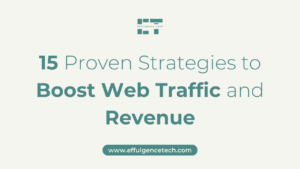Social media is an incredibly powerful marketing tool for businesses of all sizes. It enables companies to connect directly with their customers and build relationships with potential customers, while also creating brand awareness and driving leads and sales. In today’s digital world, businesses need to understand the importance of social media and how to use it effectively to help grow their business. In this blog post, we’ll take a closer look at why social media matters for businesses, and offer tips and advice on how to make the most of it.
Why Social Media Matters
In today’s world, social media is one of the most powerful tools for businesses to reach their customers. It can be used to build relationships, increase visibility, and expand your customer base. With so many people using social media, businesses need to use it as part of their overall marketing strategy.
Social media provides a direct line of communication between businesses and their customers. It’s an effective way to communicate promotions, product updates, news, and more. It’s also an excellent way to build brand awareness, build relationships, and engage with customers.
Social media also provides businesses with an opportunity to target specific audiences. Through strategic posts and targeted campaigns, businesses can reach the right people at the right time with the right message.
Finally, social media is a great way to showcase a business’s personality and values. Through creative content, companies can show their true colors and attract the right customers.
Overall, social media is an invaluable asset to any business that wants to stay competitive and grow. By leveraging its power, businesses can reach new audiences, build relationships, and create meaningful connections with their customers.
What platforms should you be on?
Social media is a powerful tool for businesses of all sizes and can be used to create brand awareness, engage with customers, and increase sales. However, with so many different platforms available, it can be difficult to decide which ones to focus on. To ensure that you’re using social media effectively to take your business to the next level, it’s important to understand which platforms are best suited to your business and its goals.
The most popular social media platforms for businesses include Facebook, Twitter, Instagram, YouTube, LinkedIn, Pinterest, and Snapchat. Depending on your target audience, some may be more suitable than others. Here’s a quick overview of each platform and how it can benefit your business:
Facebook – With over 2 billion active users, Facebook is the world’s largest social network. It’s a great platform for connecting with current customers and potential new ones. You can use it to share content, promote products or services, and host contests or giveaways.
Twitter – This platform is fast-paced and allows you to interact with customers in real-time. It’s great for sharing short updates about your business or providing customer service.
Instagram – With its focus on visuals, Instagram is an ideal platform for promoting visual content such as photos and videos. It’s also a great way to highlight customer reviews or show off products or services.
YouTube – This video-based platform is a great way to showcase tutorials, product reviews, and other engaging content.
LinkedIn – This professional network is ideal for making connections with industry professionals, seeking new opportunities, and sharing content related to your business.
Pinterest – This image-based platform is perfect for promoting products and services. You can also use it to generate traffic back to your website or blog.
Snapchat – This mobile-first platform is popular among younger generations and is a great way to keep your followers engaged with fun content such as behind-the-scenes footage or live events.
No matter which social media platforms you choose, the key is to create quality content that resonates with your audience. Spend time researching each platform, understanding the user base, and how you can engage with them. When done correctly, social media can be a powerful tool for growing your business.
What kind of content should you post?
When it comes to social media, Content is King. Your posts should be tailored to your business goals and needs, while still providing value to your followers. Here are a few tips on what kind of content you should post on social media:
1. Educate: Provide useful information to your followers. Whether it’s industry news, tips, or advice, share it engagingly.
2. Showcase Your Expertise: Let your followers know that you have the knowledge and experience to help them out. Share case studies, success stories, and other content that demonstrates why you are the best at what you do.
3. Engage: Ask questions, start polls, and solicit feedback from your followers. This will help you gain insights into their needs and preferences.
4. Promote Your Products/Services: Showcase your products and services in creative ways. Be sure to include visuals like images and videos to make your posts more engaging.
By following these tips, you can create compelling content that engages your followers and encourages them to take action. With the right strategy, you can use social media to grow your business and increase your reach.
How often should you post?
When it comes to using social media for business, one of the most important factors to consider is how often you should post. It’s important to create a consistent presence to reach and engage your target audience. But knowing how often to post can be tricky.
The frequency of your posts will depend on a few different factors, such as the type of content you’re creating, the size of your audience, and the time of day that you post. Here are some general guidelines to help you determine what works best for your business:
– Post at least once a day. The more you post, the more visibility and engagement you will get. However, it’s important not to overdo it. Posting too often can overwhelm your followers and decrease their engagement with your content.
– Use a scheduling tool. Scheduling tools are great for helping you stay organized and consistent. You can set up posts ahead of time and have them go out when you want them to, without having to manually post every day.
– Monitor your analytics. Your analytics can tell you a lot about what types of content your audience responds to best, when they’re online, and which times of day are more effective for posting. By analyzing this data, you can create a posting schedule that is tailored to your specific audience.
By following these guidelines, you can create a posting schedule that is both effective and efficient. When done right, social media can be a powerful tool for growing your business and expanding your reach.
Building a social media strategy
Social media is becoming increasingly important in business, as it allows companies to connect with their target audience in new and innovative ways. Developing a strong social media strategy can be a great way to grow your business and build relationships with your customers. Here are some tips on how to create an effective social media strategy:
1. Set Goals: Before you start creating content, it’s important to have a clear idea of what you want to achieve with your social media strategy. Do you want to increase brand awareness? Generate leads? Increase customer engagement? Setting clear goals will help you focus your efforts and measure success.
2. Understand Your Audience: Who are you targeting? What are their interests? What type of content do they engage with? Understanding your audience will help you create content that resonates with them and encourages them to interact with your posts.
3. Develop a Content Plan: Once you know who your audience is and what goals you want to achieve, it’s time to create a content plan. Decide what kind of content you’ll post, when, and how often. This will ensure that you’re providing your audience with fresh, engaging content consistently.
4. Leverage Analytics: Make sure you’re using analytics to track the performance of your content. Which posts performed best? What type of content resonates with your audience? Use this data to inform your future content strategy and make adjustments as needed.
5. Monitor Engagement: It’s also important to keep an eye on how people are responding to your posts. Are they leaving comments or asking questions? Responding to comments on time will help build relationships with your followers and show that you value their input.
By following these steps, you can create a comprehensive social media strategy that will help you reach your goals and engage with your target audience. With the right strategy, you can use social media to boost brand awareness, generate leads, and strengthen customer relationships.
Measuring success
One of the best ways to measure the success of your social media campaigns is to track metrics such as engagement, reach, and conversions. Engagement measures how much users are interacting with your content, reach measures how far it has spread, and conversions measure how many people took an action based on your post. By monitoring these metrics over time, you can gain valuable insights into how effective your social media efforts are.
In addition to tracking these metrics, you should also monitor customer feedback and reviews. This will give you an understanding of how your customers perceive your brand and whether they are satisfied with their interactions with your company. Customer feedback can be a great indicator of how well your social media campaigns are resonating with your audience.
Finally, you should also track the return on investment (ROI) of your social media campaigns. This will allow you to understand how much money you are making from each post or advertisement. By calculating the cost per post and the number of sales generated from each post, you can determine which campaigns are working and which ones need improvement.
By tracking these various metrics, you can better understand the impact that social media has on your business and make informed decisions about future campaigns. By leveraging social media to its fullest potential, you can significantly increase your reach, engagement, and conversions, ultimately leading to more sales for your business.








